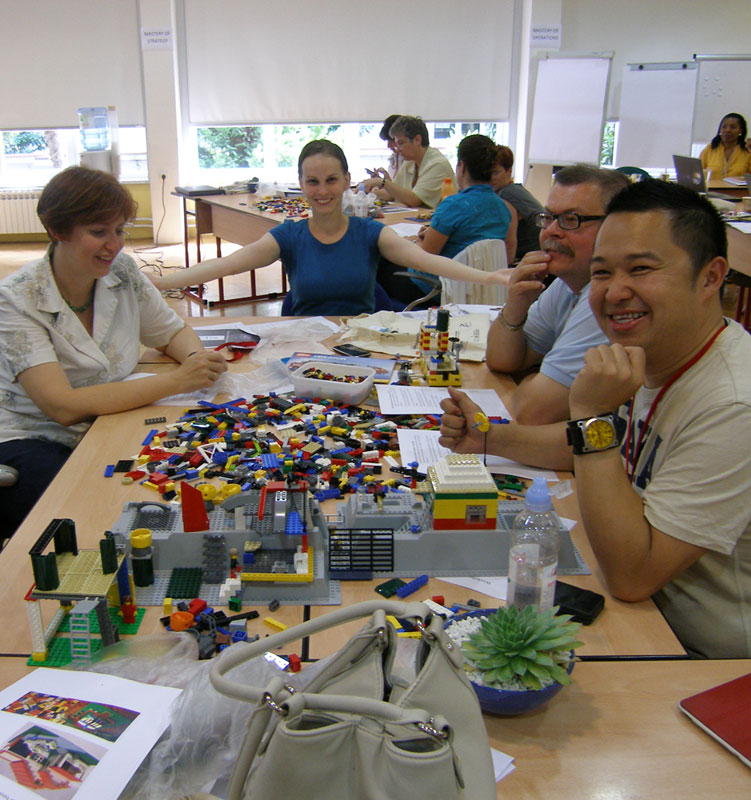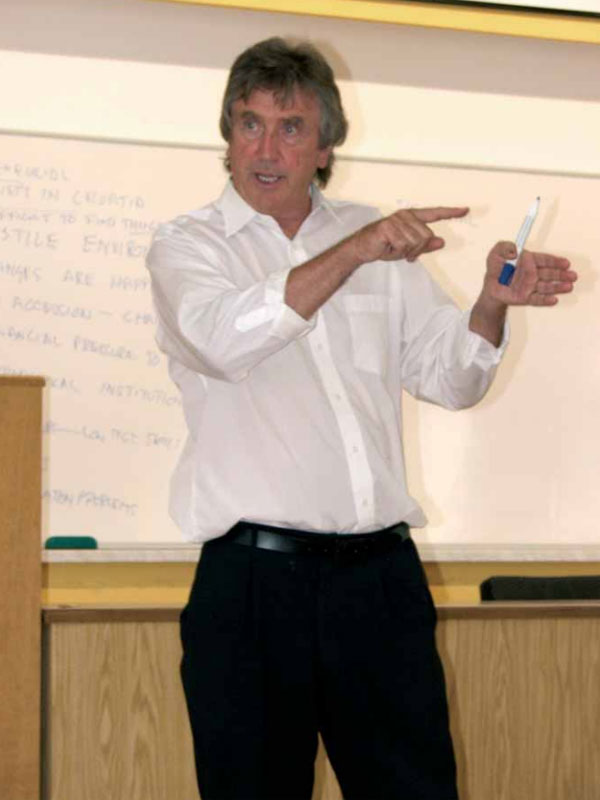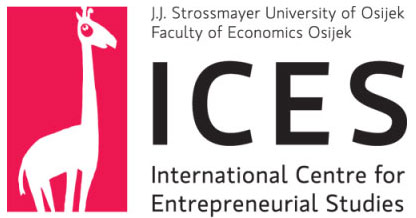

ICES
How It All Started
It did not come out of the blue – it resulted from twenty years of researching the phenomenon of entrepreneurship, activelly participating in the global discussion about entrepreneurial competences (what are they and could they be learned, and how), and why entrepreneurial competences are important in building a proactive society in dealing with challenges identified by the United Nations Sustainable Development Goals.
By the end of 1980ies, a small group of researchers/educators at the J.J. Strossmayer University in Osijek (Faculty of Economics and Business) started to research entrepreneurship, intrigued by the fact that this phenomenon was receiving global attention from researchers and has entered the field of education (such programs were flourishing across U.S. business schools). The immediate reaction was to start with an undergraduate program in entrepreneurship in 1990, but two mega changes in Croatia (disintegration of former Yugoslavia and the 1991-1995 war) put on hold any fragmented interventions in the curricula.
Nothing was like before – the war was physically destroying people, their relationships and belongings, leaving devastated economic resources and mined territories. It demanded a chain of changes, in every part of social, economic and political system, and opened the question for everyone “What I / We Can Do” (as formulated by Amitai Etzioni, in The Responsive Community: I & We, published in The American Sociologist, 1987). Education could not stay as ‘a business as usual’ and this small group of researchers took it as a call to broaden their research of entrepreneurship and to build international contacts with people who knew more how to transform research findings into learning process.
From the research we learned that contextualization is a key for successful learning and it took almost a decade to develop and implement the graduate program in entrepreneurship in 2000. Those years (including war years) were dedicated to research entrepreneurship competences (the content, learning format and capability of educators to implement research-based educational program), using system theory (Ludwig von Bertalanffy and Kenneth Boulding) and theory of innovation (Joseph Alois Schumpeter) as starting points.
Continued research of entrepreneurship, with focus on entrepreneurial capacity of individuals (entrepreneurial competences, learning process) and institutions (entrepreneurial eco-system) led toward starting the doctoral program, with strong footprints of intensive collaboration with Allan Gibb, Jerome Katz, Howard Stevenson, Antti Paasio (on owner-manager perspective, on entrepreneurship), with Saras Sarasvathy (on effectuation), with Jarmen Housma (on technopreneurship).
In 2010 the first cohort was enrolled in the international interdisciplinary inter-university doctoral program ENTREPRENEURSHIP AND INNOVATIVENESS, as a part of the International Centre for Entrepreneurial Studies (ICES). The ICES was established as a transversal university unit to home this doctoral program. Both the doctoral program and ICES came about as a joint effort of five universities: Osijek, Croatia; Turku, Finland; Durham, UK; Klagenfurt, Austria; and Maribor, Slovenia) funded through the European Union’s TEMPUS (Trans-European Mobility Programme for University Studies) 2007–2010. The program is delivered in English and in hybrid mode (onsite and online). The enrolment and faculty are international, including Bosnia and Herzegovina Canada, China, Finland, Germany, Ghana, Greece, Kosovo, the Netherlands, Nigeria, Pakistan, Slovenia, Spain, U.S.A. Students come from different disciplines such as engineering, economics, law, agriculture, and humanities, which tests to the interdisciplinary nature of the program.
This process of researching entrepreneurship was a source for developing a peculiar entrepreneurial eco-system, in which academic activities (research and education at the J.J. Strossmayer University in Osijek, from late 1980ies) were connected to building institutional infrastructure focused on venturing (NOA, 1996 – first micro-finance institution in Croatia, by learning from of micro-lending experience initiated by Professor Mohammad Yunus in Bangladesh, providing loans to clients who are not bankable), as well as on those who wanted to enter self-employment or to grow existing small venture (Center for Entrepreneurship in Osijek, 1997 – using experience of U.S. Small Business Development Centers), and the first policy think-tank on entrepreneurship and the sector of small and medium sized enterprises (CEPOR SMEs and Entrepreneurship Policy Center in Zagreb, from 2001 – using experience of some UK policy think-tanks). And, this entrepreneurial eco-system proved to be sustainable and vibrant – students have opportunities to learn from the practice, researchers can research some specific features of entrepreneurship. For more insight in the chronology of developing entrepreneurship educational programs at the J.J. Strossmayer University in Osijek as well as this specific entrepreneurial eco-system see Chapter 4 (p.51-84) Singer, S. Entrepreneurship Education in Croatia, published in Xiaozhou Xu, Editor. Comparative Entrepreneurship Education, Springer, 2023:

